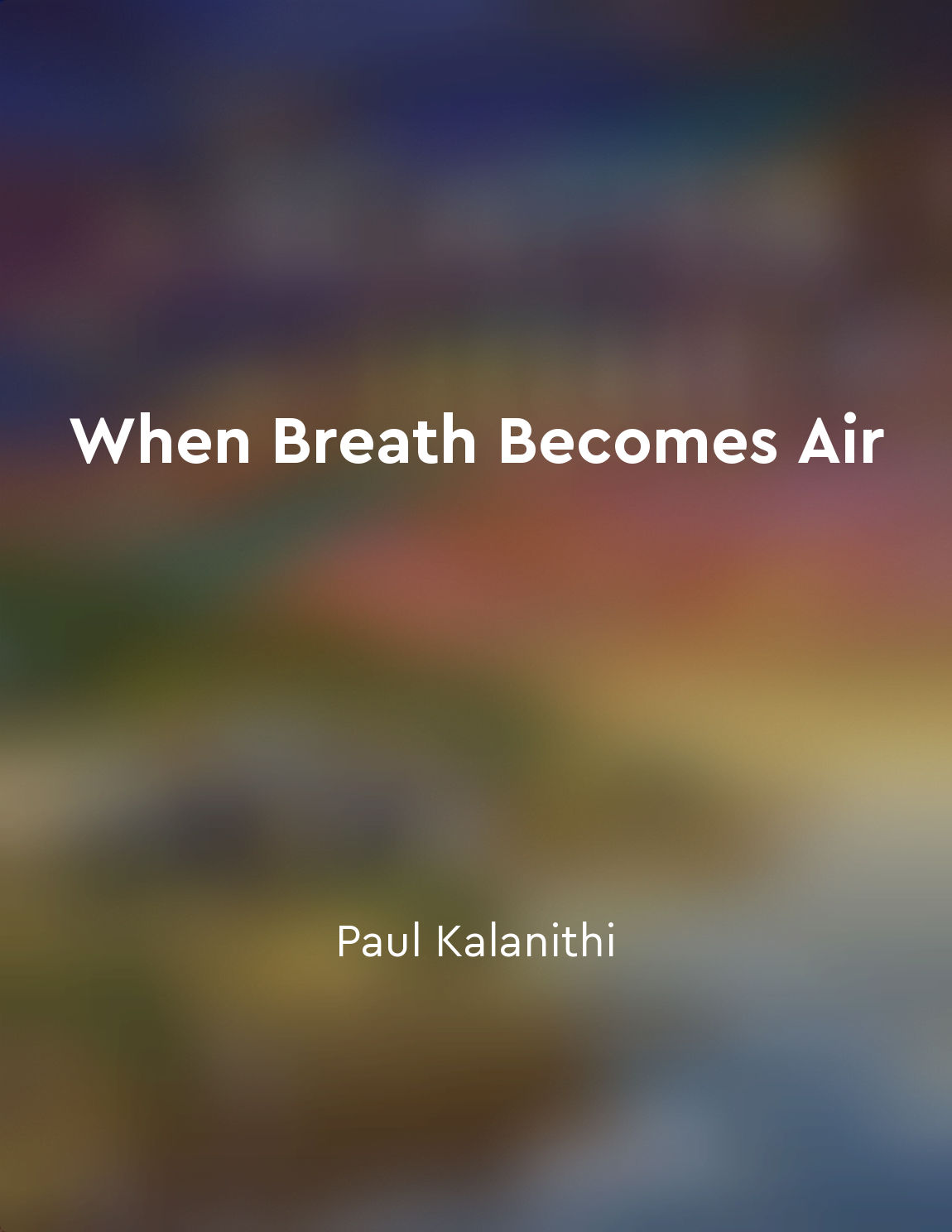Communication is key in healthcare from "summary" of When Breath Becomes Air by Paul Kalanithi
In medicine, the art of communication is often overlooked. It is easy to focus solely on the technical aspects of healthcare, forgetting that at the heart of it all is a human being - a patient with fears, hopes, and questions. In the midst of busy schedules and endless responsibilities, it can be tempting to rush through conversations, to deliver diagnoses and treatment plans without taking the time to truly connect with the person in front of you. But what Paul Kalanithi understood, as both a doctor and a patient, is that communication is not just a nicety - it is a necessity. It is the bridge that connects the expertise of the medical professional with the needs of the patient. Without effective communication, there is a risk of misunderstanding, confusion, and ultimately, harm. Patients need to feel heard, understood, and respected. They need to be active participants in their own care, empowered to make informed decisions about their health. This is especially true in the face of difficult news or complex treatment options. As a neurosurgeon, Kalanithi often found himself in the position of delivering devastating diagnoses to his patients. He knew that the way he communicated this information could profoundly impact how the patient experienced their illness. With empathy and honesty, he sought to navigate these conversations with sensitivity and clarity, acknowledging the gravity of the situation while also offering hope and support. On the other side of the table, as a patient himself facing a terminal illness, Kalanithi experienced firsthand the importance of clear and compassionate communication. He appreciated doctors who took the time to explain his condition in terms he could understand, who listened to his concerns and fears, and who treated him not just as a case study, but as a person. This level of communication helped him feel more in control of his own journey, giving him the strength to face the unknown with courage and dignity.- What Kalanithi learned is that communication is not just about exchanging information - it is about building trust, fostering connection, and ultimately, enhancing the quality of care. It requires humility, empathy, and a willingness to truly see the person in front of you. It is not always easy, especially in the midst of life-and-death decisions, but it is always worth the effort. Because when communication becomes the focus of healthcare, healing becomes not just a medical intervention, but a profound human experience.
Similar Posts
Understanding patients' perspectives is essential
To provide effective care, healthcare professionals must understand patients' perspectives. This means listening carefully to w...
Building trust through listening is necessary
Trust is a foundational element in any relationship, and it is especially critical in the healthcare setting. Patients entrust ...
Global health initiatives benefit populations worldwide
Global health initiatives are crucial in addressing health challenges that transcend national borders. These initiatives aim to...
Doctors must consider all factors before making a decision
When faced with a decision, doctors must carefully analyze all aspects of a situation before determining the best course of act...
Doctors make choices based on their knowledge and experience
Doctors rely on their extensive knowledge and years of experience to make critical decisions in the medical field. This experti...
Exposing the flaws in diagnostic procedures
In the medical field, the diagnostic process is often seen as a reliable and precise method of identifying illnesses and condit...


